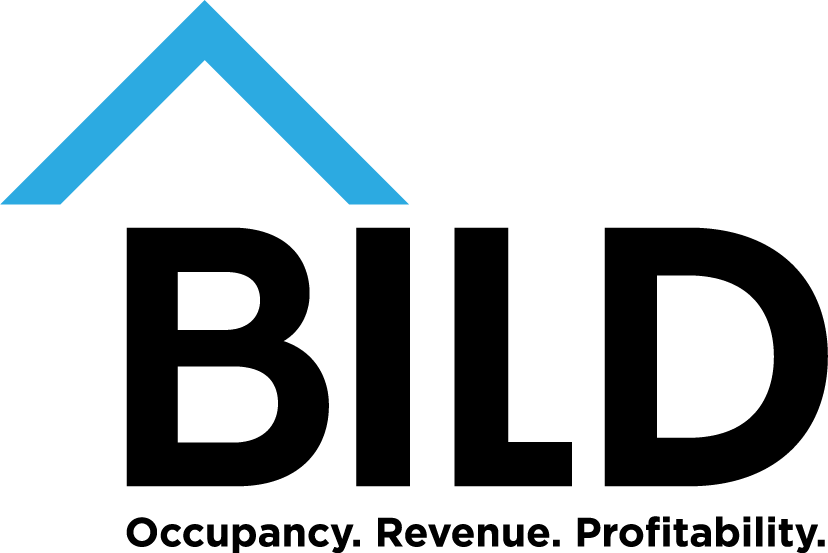
BILD Library
Lorem ipsum dolor sit amet, consectetur adipiscing elit. Suspendisse varius enim in eros elementum tristique. Duis cursus, mi quis viverra ornare, eros dolor interdum nulla, ut commodo diam libero vitae erat.

We're sharing our industry insights and valuable life lessons here.
Enjoy reading our real life stories and insights of how to handle Senior Living industry day-to-day challenges, how to grow, win and always stay at the top. Enjoy!

Five Steps to Salvage Your Balance Sheet in Record Time
It pays to equip your assisted living site level team with professional selling skills.

Assisted Living Operator Opportunity Lies in The Conversions
Three steps to net an additional 12 to 18 assisted living move-ins within six months.

Five Steps to Fix Your Workplace Woes
Women make up 87% of healthcare workers and they are leaving by the millions.

Six Steps Senior Living Operators Can Take To Scale Smart
Why accept a slow grow when you can vastly impact revenue and NOI faster?

Marketing is NOT Your Revenue Generator
Don’t spend another dollar on marketing and lead generation until you have these four actions in hand.

Six Early Warning Signs For Your Seniors Housing Community
The alarm bells are going off; the vicious cycle of apathy among assisted living operators.

Three Statistics About Why ALO Can’t Grow Top Line Revenue
20% of all apartments are currently vacant with senior living communities losing on average.

The Pros and Cons of Discounting in a Difficult Assisted Living Market
Alternatives to discounting that can drive move ins while restoring assisted living margins.

Three Strategies to Help Increase Move-Ins
Stop telling assisted living sales & marketing directors how many move-ins they need.

Assisted Living Operators MUST Learn to Grow Top Line Revenue
Seniors housing operators must professionalize the assisted living sales process.

The Great Resignation: Assisted Living’s Next Big Crisis
7 steps assisted living and long-term care operators must take now to retain valuable employees.

The Most Important Blog an AL Owner-Operator Will Read This Year
Five actions assisted living CEO's must take now, despite the discomfort.

Assisted Living Marketing and Lead Generation: Part 1 of 2
The underlying reason your assisted living marketing investments rarely pay off in leads that move in.

Customer Service Has Become Just Lip Service
Customer service has become nothing more than lip service.

Assisted Living Marketing and Lead Generation: Part 2 of 2
6-steps to pivot and get results by taking marketing in-house to increase traffic, move ins, and revenue.

Confidence in Selling Assisted Living is Gone
There is a BIG disconnect between independent and assisted living operators.

It’s Time to Professionalize Seniors Housing Sales
Assisted living operators can no longer afford to leave the buyer experience to chance.

7 Steps to Resetting Your Life in 2021 and It Starts Now
These 7 steps will spark a new beginning in your life today. Read on!

Selling is Hard, Execution is harder. Part One of a Two Part Series
Seniors Housing Operators face increased complexities that few fully understand.

Discounting to Drive Senior Living Move-Ins Consequences
Discounting rent to drive assisted living move ins could have dire consequences.

Selling is Hard, Execution is Harder: Part 2 of the Series
Expect to see seniors housing operators focus on the complex operational aspects.

Assisted Living Operator Opportunity Lies in The Conversions
Three steps to net an additional 12 to 18 assisted living move-ins within six months.

Six Steps Senior Living Operators Can Take To Scale Smart
Why accept a slow grow when you can vastly impact revenue and NOI faster?

Marketing is NOT Your Revenue Generator
Don’t spend another dollar on marketing and lead generation until you have these four actions in hand.

Six Early Warning Signs For Your Seniors Housing Community
The alarm bells are going off; the vicious cycle of apathy among assisted living operators.

Three Statistics About Why ALO Can’t Grow Top Line Revenue
20% of all apartments are currently vacant with senior living communities losing on average.

The Pros and Cons of Discounting in a Difficult Assisted Living Market
Alternatives to discounting that can drive move ins while restoring assisted living margins.

Three Strategies to Help Increase Move-Ins
Stop telling assisted living sales & marketing directors how many move-ins they need.

Assisted Living Operators MUST Learn to Grow Top Line Revenue
Seniors housing operators must professionalize the assisted living sales process.

The Great Resignation: Assisted Living’s Next Big Crisis
7 steps assisted living and long-term care operators must take now to retain valuable employees.

The Most Important Blog an AL Owner-Operator Will Read This Year
Five actions assisted living CEO's musttake now, despite the discomfort.

Assisted Living Marketing and Lead Generation: Part 1 of 2
The underlying reason your assisted living marketing investments rarely pay off in leads that move in.

It’s Time to Professionalize Seniors Housing Sales
Assisted living's lack of sales systems are resulting in lost sales, revenue, and net operating income.

7 Steps to Resetting Your Life in 2021 and It Starts Now
If you are mentally exhausted, tired of the daily chaos in the news and on your social feeds, and seek a reprieve.

Five Steps to Fix Your Workplace Woes
Women make up 87% of healthcare workers and they are leaving by the millions.

Five Steps to Fix Your Workplace Woes
Women make up 87% of healthcare workers and they are leaving by the millions.

Five Steps to Fix Your Workplace Woes
Women make up 87% of healthcare workers and they are leaving by the millions.

Selling is Hard, Execution is harder. Part One of a Two Part Series
Seniors housing operators face increased complexities that few fully understand.

Discounting to Drive SL Move-Ins Could Have Dire Consequences
Discounting rent to drive assisted living move-ins could have dire consequences for everyone.

Selling is Hard, Execution is Harder: Part 2 of the Series
Seniors housing operators face increased complexities that few fully understand.
